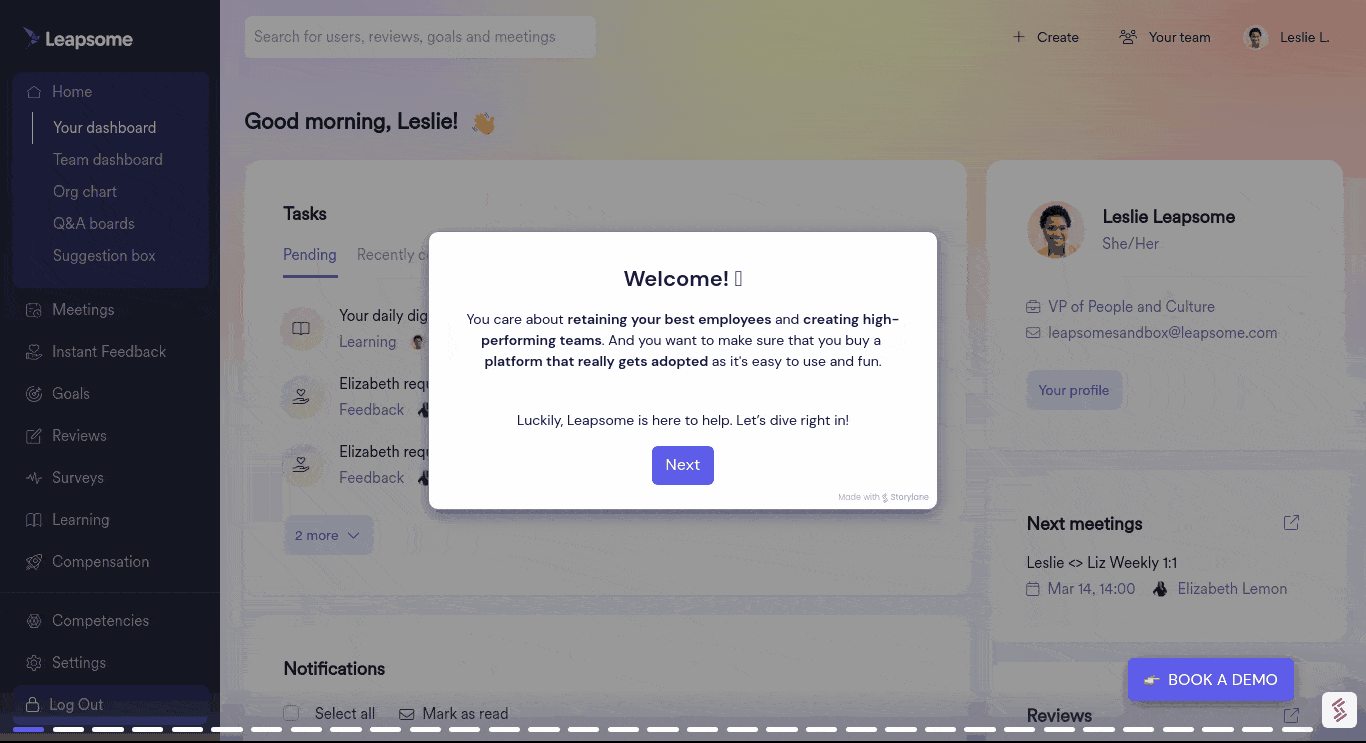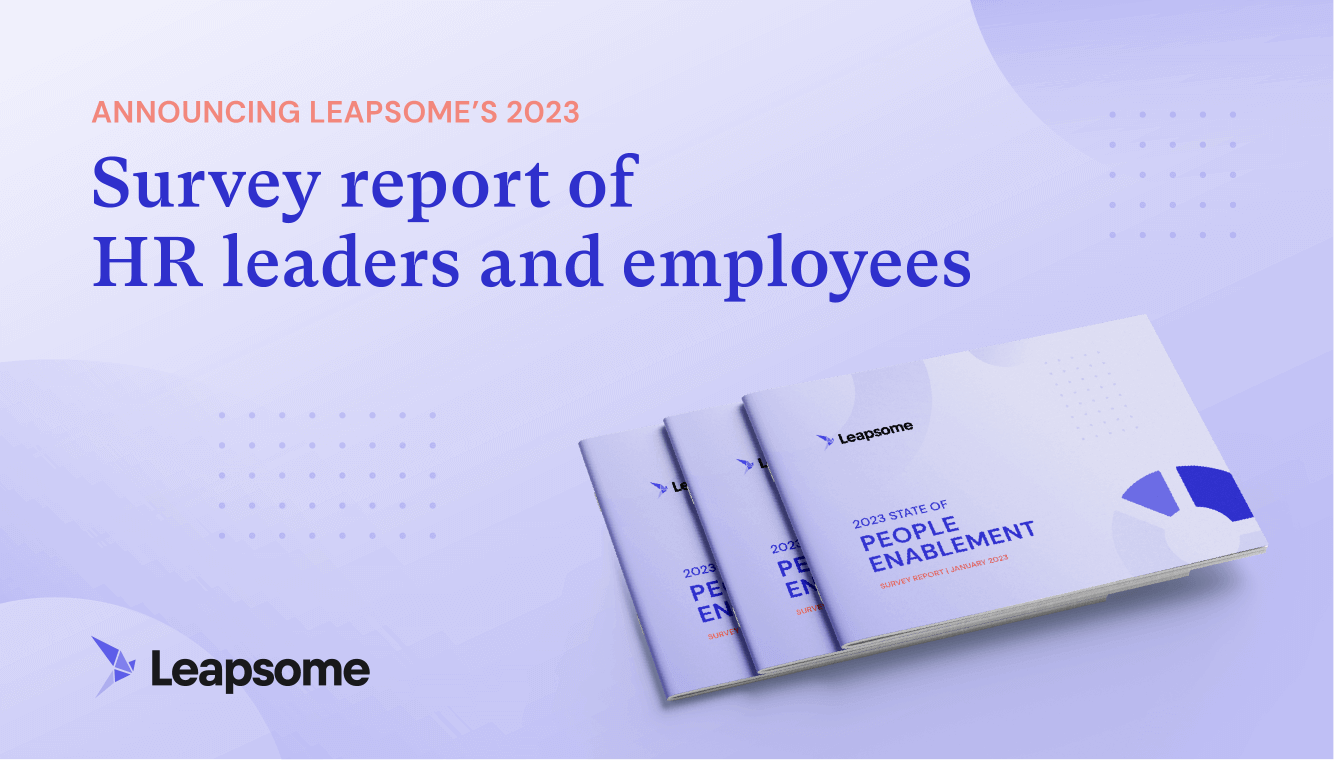20 everyday HR processes to streamline in 2020

It’s 2020 and a new decade is upon us. Along with a growing emphasis on professional empathy and diversity, as well as wider interest in upskilling and development, digital transformation is one of the core topics defining the ever-nearer ‘Future of Work.’ With the arrival of sophisticated management platforms in recent years, Human Resources is being redefined less as an administrative function and more as a leading force in modernising the workplace.
However, it’s not always clear what is meant by ‘digital transformation.’ At a time when businesses are eager to put the ‘human’ back into ‘Human Resources,’ it may seem strange to put so much emphasis on technology. Some even argue that you don’t need digital tools as long as you have the right work culture.
Yet in order for HR to fulfil their expanding role as innovators, and avoid being burdened with endless admin, traditional HR processes need to become more streamlined. We’ve laid out a few ways in which Leapsome can help HR departments deliver impact and cut down on their workload. Here’s the list:
If you’re on the HR team ...
- Have your performance reviews kick themselves off
Reviews have gained a reputation as a particularly troublesome event: and it’s no wonder when managers have been reported as spending 210 hours per year on performance management processes. Yet with an estimated 70% of multinationals moving towards more frequent reviews, performance reviews are by no means a thing of the past. Thankfully, now you can simply automate your decentralised company reviews to be kicked off when each employee reaches their individual work anniversary: no bottle-necks, no stress! - Use self-activating probation period reviews
Sometimes you’ll need to hold a more specific performance review – when assessing the probation period for a new employee, for example. In this case, you can set the employee’s start date as the trigger for their first review, so that every employee automatically enters a review cycle once they’ve worked at the company for a set duration; typically three or six months. Automating probation period reviews makes the process feel less loaded for the employee, whilst easing the workload for their manager. - Set engagement & pulse surveys to recur
On the subject of automated kick-offs, don’t forget you can set up employee surveys to recur (one round every quarter, let’s say). Once these are automated, you can rest assured your workforce are being asked for their opinions on a regular basis — so even if you lose track of time, you don’t lose track of your employees’ wellbeing. - Understand how company skills & values are distributed
As well as gathering detailed, verbal feedback, it can be incredibly useful to collect quantitative data about how your team is performing, mapped against specific company values or skills. Collecting numerical data allows you to measure the way strengths are distributed across different areas of the company, illuminating areas in need of attention.
- See the relationship between engagement & performance analytics
Wouldn’t it be great to understand the engagement metrics of different performance quantiles? Luckily, our in-depth analytics are designed to help you do just that. Now you can get closer to understanding what makes your company’s top performers tick; how to remedy engagement issues in relation to performance, and where you’re at risk of churn. - Enrich survey answers with anonymous conversations
Anonymity is crucial if you want to get honest results from your employee surveys. But how can you engage with nuanced or ambiguous answers if you don’t know who provided them? Leapsome’s anonymous conversations feature enables dialogue with participants without compromising their anonymity.
- No need to waste energy chasing review submissions or survey participation
Ensuring employees participate in performance reviews and engagement surveys can be a wearisome task when stretched out over a period of days, or even weeks. Automated survey and review reminders take that task off your plate. Now you can sleep easy knowing that Leapsome is taking note of incomplete review tasks and survey submissions – and sending the necessary reminders to ensure participation rates are as high as they can be.
- Ensure every employee is contributing to goals
While it might often seem like there are more than enough goals to go round, the amount of goals allocated to each individual can vary significantly. Leapsome’s Goal Cycles make it easy for managers to see which direct reports don't yet have a goal attached to that cycle. When your organisation shoots for the moon, Leapsome ensures none of your employees are left behind. - Remind employee to update their goals at the end of the quarter
Similarly, when the time comes to assess the last quarter, you want to make sure the achievements of each employee has been factored into your retrospective. This also happens to be an impactful way to normalise goal tracking: who doesn’t love to record their achievements? - No need to update employee data in more than one tool
Because Leapsome is designed to synchronise employee data from existing HRIS systems, you don’t even need to manually invite new employees to join the platform. Employees automatically get a Leapsome account as part of the onboarding process.
If you’re a manager or employee ...
- Streamline your calibration process
Leapsome is an indispensable tool for managers holding calibration meetings to discuss and align review feedback. To begin with, the platform lets you view all feedback before sharing it with the reviewee. But you can also use Leapsome’s People Analytics to compare the rating tendencies of individual managers, allowing you to account for the submissions of managers who habitually give stronger-than-average feedback. This capability ensures any bonus or promotional decisions are made more fairly.
- Never miss a piece of feedback
Whenever you get a piece of feedback via Leapsome, you’ll receive a notification in your inbox as well as the platform itself, and Slack if you enable the integration. And when you receive that well-earned piece of praise, it’ll be visible to other Leapsome users in your company, as well as a dedicated Slack channel, so that your contributions are never overlooked.
- Be ready for upcoming 1-on-1 meetings
If it’s a particularly busy period, it can be easy to arrive at 1-on-1 meetings feeling unprepared (or even forget about them until the very last moment). With Leapsome you can avoid being caught off guard, as the platform reminds you of approaching 1-on-1s and sends you a copy of the agenda in advance, leaving you enough time to plan ahead and show up prepared.
- Structure your team meeting agenda with talking points
Similarly, in the lead up to a team meeting you’ll also be prompted to contribute to the shared meeting agenda so that when it comes around, you have a clear idea of what needs to be discussed. If you’ve already added talking points, these will be displayed alongside the other participants’ shared talking points.
- Request feedback without practical limitations
It can be difficult to ask for feedback in real-time. If, after giving a presentation to a group of ten, you want to know how it went, it’s unlikely you’ll be able to get detailed feedback from each of them in person. But you also don’t want to send out a group email and clog people’s inboxes. This is where the feedback request function comes in: it lets you prompt others for feedback without any awkward time constraints.
- Contextualise your review talks & meetings with feedback
Remember the array of Excel spreadsheets you used to spend hours trawling through? Maybe you even have a particularly large filing cabinet in mind. Luckily for you, piles of paperwork – even the virtual ones – have no place in 2020. Leapsome’s feedback integration lets you refer to past feedback without ever having to leave your review or 1-on-1 meetings window.
- Keep your goal progress in view with the weekly digest
Particularly when starting out with OKRs, it can take a while to get into the habit of tracking and updating your goals. Sometimes, there’s so much to do that you forget to check where you are with it all. Thanks to Leapsome’s digest on goals, staying informed on your achievements is as simple as reading your weekly news.
For everyone within the company ...
- Conclude your last goal cycle & start the next one on time
The handover between quarterly cycles is an important one. Managers need to strike the right balance between wrapping up the last cycle and planning the next one – without losing too much time, of course. To simplify the recurring process of moving seamlessly into a new cycle, Leapsome automates new goal cycles to ensure each phase begins and ends exactly when it should.
- Use the development profile to map individual strengths holistically
Another advantage of gathering providing every employee with quantitative feedback is the way it enables each user to build an individual development profile. A user’s development profile maps out their strengths and development areas and how these change or progress over time, using feedback from peer, manager and self-reviews to visualise their feedback in a holistic way.
- Maintain perspective on overall goal progress
There’s an art to aligning day-to-day projects with overarching long term goals. When you complete a task, it’s not always easy to get a sense of how that changes the bigger picture. But when you update a key result within Leapsome, the platform adjusts the progress of its parent goal so you’re always up-to-date and can see the downstream effect that completing smaller goals has on overarching strategic ones.
Related articles
Back to the blogReady to upgrade your people enablement strategy?
Explore our performance reviews, goals & OKRs, engagement surveys, onboarding and more.
.webp)
.webp)
 Request a Demo Today
Request a Demo Today






.png)

















